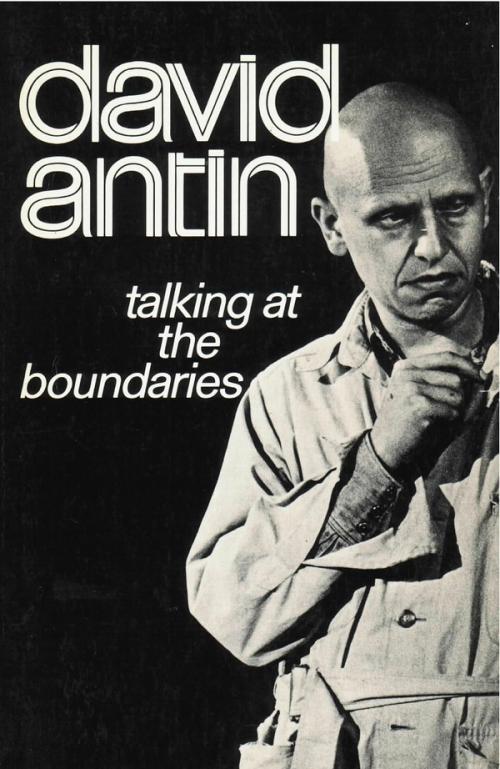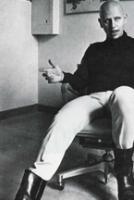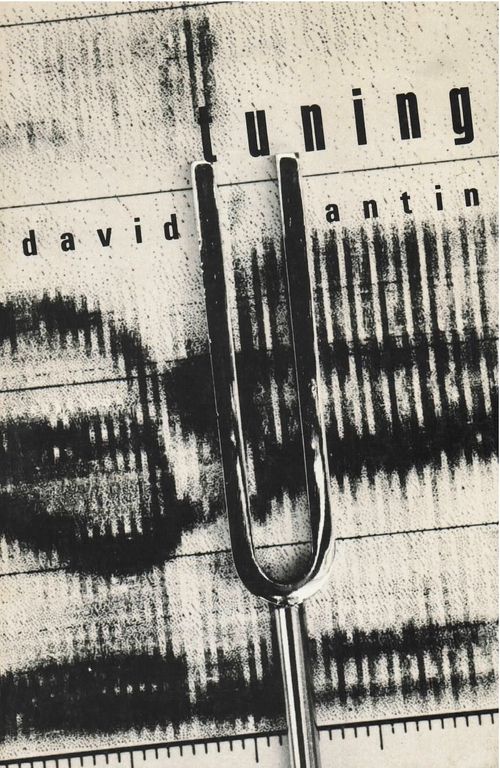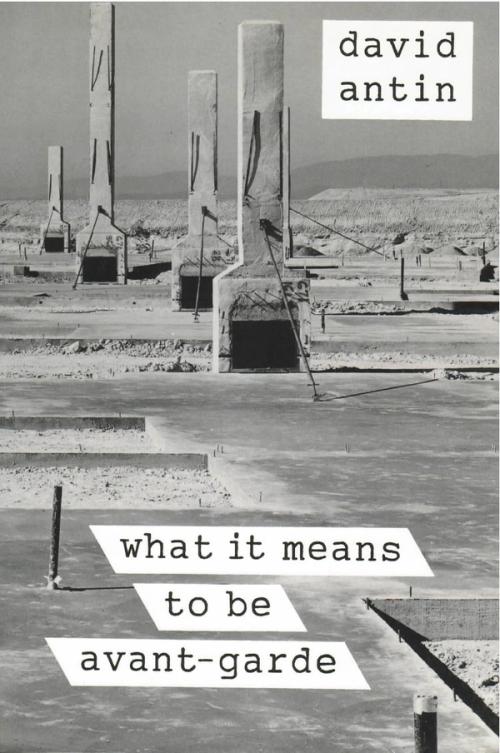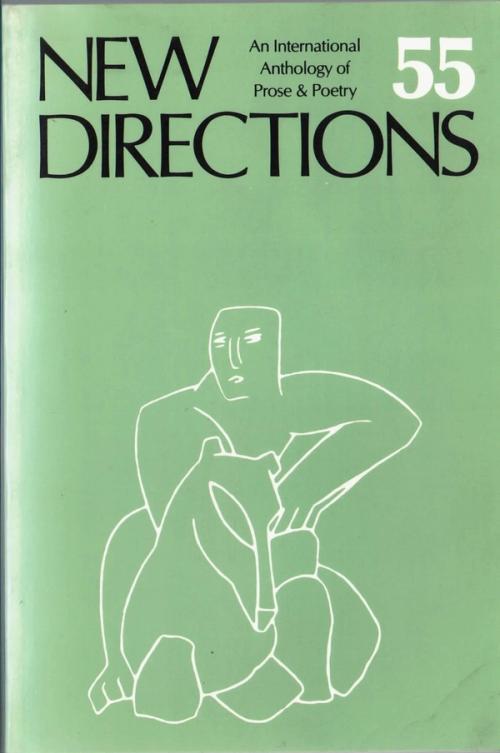Talking At The Boundaries
Poetry by David Antin
For the last few years the poet and art critic David Antin has been performing spontaneous “talk poems,” eight of which have been brought together in Talking at the Boundaries. “I see my talking pieces,” says Antin, “as philosophical inquiries to which I try to bring the resources of language, not only my own language, but natural language in its natural setting, or one of its natural settings––talk. I’ve been a poet, critic, linguist, and engineer, and though this knowledge informs the book, it is not the work of a professional, of which there are by now too many that have proved too useless. What kind of a professional was Socrates? Talking at the Boundaries,” he continues, “asks questions about life, about art, about the nature of experience and how it is apprehended. All of the pieces in it began––like most talk––as improvisations on particular occasions in particular places. They were recorded and transcribed with more or less modification to make this book. But as an improvisation is not in ’prose,’ which is an image of the authority of ’right thinking’ conveyed primarily through ’right printing’––justified margins, conventional punctuation, and regularized spelling––this book has been printed without recourse to such appeals. I do not recognize my wife’s name by its spelling on a page and write it as I see fit when the occasion arises. In this I console myself that Shakespeare’s father’s name is recorded in eighty-three different spellings and that he himself spelled it four different ways in his own will.”
Paperback(published Oct, 01 1976)
- ISBN
- 9780811205603
Clothbound(published Oct, 01 1976)
- ISBN
- 9780811205597
